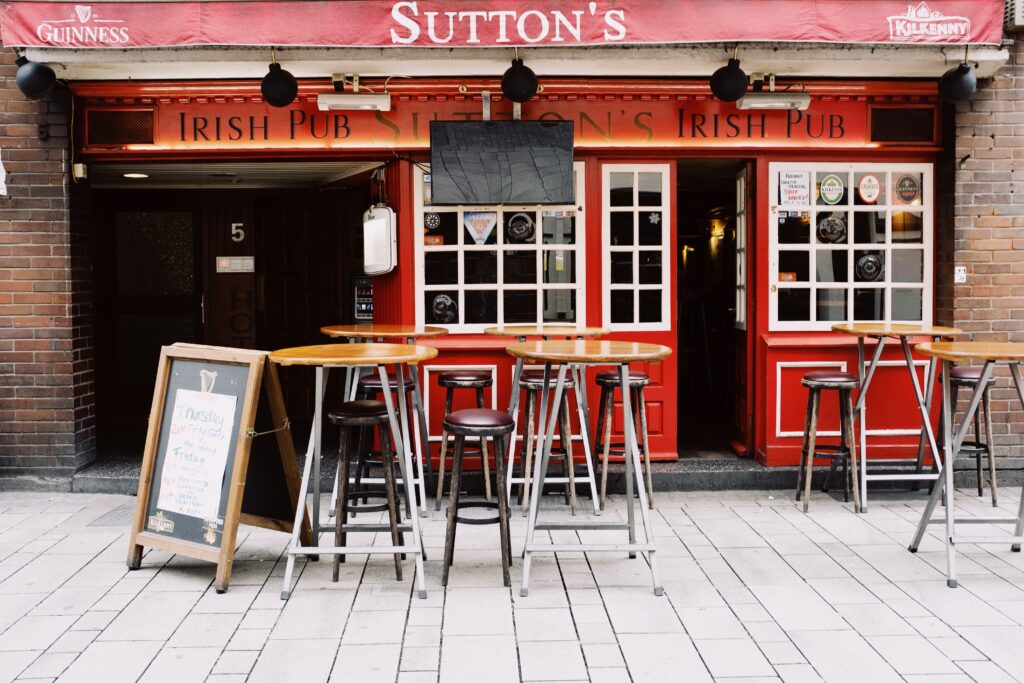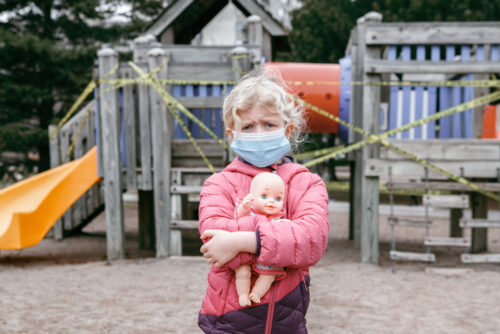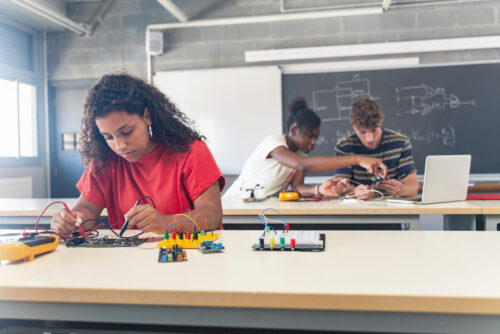“Third places” suffered greatly during the pandemic, and we suffered for their absence in our daily lives.
The Covid-19 shock severed many of the important connections we have to third places, those informal gathering places that are a welcome escape from home (the first place) and work (the second place). They include places like bars, restaurants, cafés, barber shops, beauty salons, parks, and libraries. These friendly hangouts are what H. L. Menken called “a hospital asylum from life and its cares.”
As we try to recover from the pandemic, our healing can’t only be measured in terms of economic production, lifting mask requirements, or unrestrained travel. It must include a return to these relaxing and engaging places that make up civil society—and a search for new ones to replace those we lost.
Third places are inclusive, with no membership requirements. We visit them voluntarily. They offer conversation time and opportunities to play. They’re civil society’s living room. As such, they help us form close friendships and increase our civic involvement. They promote connection and belonging, offering the social treasures we gain by interacting with others, what experts call “place capital.”
I saw third place benefits firsthand when I was growing up. I worked from an early age in a place called the Golden Gate Inn, the Italian tavern owned by my grandparents. Like the song in the TV show about a bar named Cheers, it was a third-place “Where everybody knows your name, and they’re always glad you came.” Occasionally, it was a relief to see some folks leave.
Two groups frequented the tavern. The first were neighborhood regulars, mostly Italian Americans, arriving after dinner to talk and have a drink or two. The other regulars were factory workers of different racial and ethnic backgrounds from the nearby manufacturing plants who arrived to do the same thing.
To the casual observer, there was nothing exceptional about the Golden Gate Inn. But it was a true third-place institution—part of the mortar that bound the neighborhood together.
Places like the Golden Gate Inn suffered greatly during the pandemic. And we too suffered from their prolonged absence. As Americans emerge from the disconnections brought on by pandemic hibernation, we must rediscover third places and the connections they offer. They are an important part of civil society, those voluntary institutions that give us a sense of place and purpose in society. These smaller forms or venues of association keep communities strong.
The benefits of third places don’t just lie in broad assessments of civil society. On an immediate level, they serve to connect us with different people and their social networks, thereby overcoming our natural tendency to self-select into groups like ourselves. A report from the Survey Center on American Life explains: “Americans who live in areas packed with neighborhood amenities . . . tend to report having a more racially and religiously diverse set of friends and acquaintances.”
There are practical advantages to having diverse social connections. Experts distinguish between bonding and bridging social capital, two types of trusting relationships we have with others. Bonding social capital is nurtured in like-minded groups. Bridging social capital is nurtured in groups that are mixed racially, demographically, and in other ways. As social scientist Xavier de Souza Briggs observes, bonding social capital is for “getting by.” But bridging social capital is for “getting ahead.” In other words, third places foster the sorts of associations that lead to opportunity.
Third places are essential for forming the relationships and associations that are part of civil society that help people succeed, discover new opportunities, and live more flourishing lives. The Survey Center report indicated that “Living close to a variety of amenities, such as cafes and parks, [also] increases neighborliness, feelings of safety, social trust, and positive feelings about the community.”
The coronavirus disrupted our connections to people and places, particularly third places where we meet old friends and find new ones. Putting the pandemic and its ill effects behind us involves connecting again to third places so that workers, neighbors, and families have a place “Where everybody knows your name, and they’re always glad you came.”






